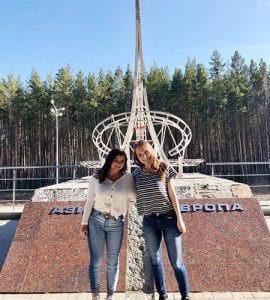Taking Action on Climate Change, and More – Boston News

Let’s explore some of the most interesting stories that have emerged from Boston business schools this week.
This Tool is Pushing People to Take Action on Climate Change – MIT Sloan Newsroom
New research from MIT Sloan Professor and Sustainability Initiative Director John Sterman finds that the role-play simulation World Climate, in which “participants take on the role of delegates to the UN climate change summits, and negotiate face-to-face with other participants to reach a climate change agreement,” might assist the powers that be understand and inspire environmental change.
Sterman and his co-authors write, “The results indicate that World Climate offers a climate change communication tool that enables people to learn and feel for themselves, which together have the potential to motivate action informed by science.”
“Research shows that showing people research doesn’t work. World Climate not only boosts people’s knowledge of climate change and increases the urgency they feel, but also generates gains in hope.”
You can read the full article here.
The Legacy of Boaty McBoatface: Beware of Customers Who Vote – HBS Working Knowledge
Harvard Business School Professors Michael Norton and Leslie John recently co-authored a new working paper about the pitfalls of crowdsourced naming competitions. Case in point: Boaty McBoatface, the winning entry for the National Environmental Research Council’s online voting poll to name the agency’s new research vessel.
When NERC overruled ‘Boaty McBoatface,’ there was massive public backlash. Professor Norton explains, “When firms conduct online polls, people frequently submit ridiculous entries; and with social media, those entries will go viral. But even when firms never guarantee that consumers will choose the winner, consumers infer an implicit contract and are upset when that contract is violated.”
The researchers incorporated the NERC case study into its research as a compelling example of how companies can potentially violate consumer trust in crowdsourced polls, according to John. “It’s offensive because consumers feel as though the firm broke the contract.”

In 2016, the National Environmental Research Council conducted a public poll to name its vessel. The winner, infamously, was Boaty McBoatface, but the council renamed it to the RRS Sir David Attenborough.
Norton and John offer a number of options that allow companies to safeguard against potential fallout from “off-the-wall choices” by being “very explicit about how they will consider the voice of consumers before the vote begins.”
The researchers also advise “pre-selecting acceptable outcomes on which consumers can vote, culling options from consumer suggestions without publicizing the actual number of votes for each, [or] setting up some kind of screening process, by which only actual customers can vote, but giving out a voting code attached to products.”
You can read more from Norton and John here.
From Building on Bones to Building on Blockchains: D’Amore-McKim Students Experience Russia – DMSB Blog

Marina Hess DMSB21 and Anya Losik COS21 pose at the border between Europe and Asia
The D’Amore-McKim School of Business at Northeastern University recently profiled 16 students who took part in a month-long Russian study abroad trip entitled “Driving Growth in Russia: From Building on Bones to Building on Blockchains.”
Yuan Vu Dinh Van (DMSB ’21) broke down the major takeaways from the cross-country excursion.
“By visiting Russia, I was able to see a different way of doing business compared to the model used in the U.S. Business in Russia seems to be conducted similarly to that of Ecuador, as only the people with the contacts and the money succeed in business, while in the U.S. it is easier for anyone to do that.”
Van adds, “I also learned about different ways to manage people, as Russian employees often prefer to be given orders and don’t have as much freedom as U.S. employees typically have in regards to the decision making. It really opened my mind to how important the role culture plays in doing business in different countries.”
You can read more from the interview here.
